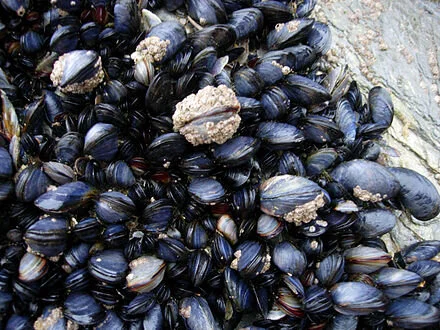
Subsidize your strengths
From Robert Whitcomb’s “Digital Diary,’’ in GoLocal24.com
With all the government goodies used to lure big companies, it’s refreshing to see a little state government help for small local companies that have a comparative advantage. That advantage can stem from their location, in Rhode Island’s case being on the ocean.
I write here of two companies.
One is Quonset-based American Mussel Harvesters, an aquaculture company that raises mussels, oysters and clams in the Ocean State. Shellfish aquaculture has been hard hit by the pandemic because the products have been primarily sold to restaurants. But the Rhode Island Commerce Corporation decided on Jan. 29 to give the company a $50,000 grant to help design a new bagging system for two-pound bags to sell to individual customers. Restaurants have generally been buying 10-pound bags. Much of the restaurant sector will come back, albeit in different forms, when COVID fades, but certainly shellfish farmers need to diversify their customer base a lot.
Meanwhile, the Commerce Corporation is making a $49,972 grant also appropriate to the Ocean State: Helping Flux Marine, of East Greenwich, in a project to make electric outboard motors. There’s the green-energy aspect, of course, but there’s also that there wouldn’t be gasoline spills from these outboards.
Beats putting money into the local casino business, including its support system (e.g., IGT, the gambling-tech giant and partners with its pending 20-year, no-bid Rhode Island state contract). Casinos prey on lower-income people and send much of their money out of the region.
Dark and windy city
"Unquiet City XXA'' (pigment print on canvas) in the "Boston Through the Eyes of Robert Hesse Collection'' at the Patricia Ladd Carega Gallery, Center Sandwich, N.H.
I must admit that I have always found Boston unfriendly, class-ridden, too ethnically and religiously tribal and too windy. This picture reminds me of the chilling scenes outside my father's office on Federal Street in downtown Boston more than 50 years ago, when he worked for a long-dead Boston company called the United Shoe Machinery Corp. in a stepped, gold-topped Art Deco skyscraper put up right before the Depression. That slump lasted, off and on, into the '50s in Boston, at least in some ways. The Brink's Robbery was a nice distraction.
Poor John Cheever, the novelist and short-story writer who grew up just south of what we headline writers used to call "The Hub,'' used to get so depressed and anxious when he returned to Boston that he'd get drunk and sometimes be found like a bum sleeping on a bench in Boston Common.
Of course, he did have various "issues,'' as they say. But growing up in the downcast environment of Greater Boston was one of them.
The city is a lot spiffier now than it was a few decades ago, but no friendlier.
I'll take Manhattan., or even Brooklyn.
-- Robert Whitcomb


